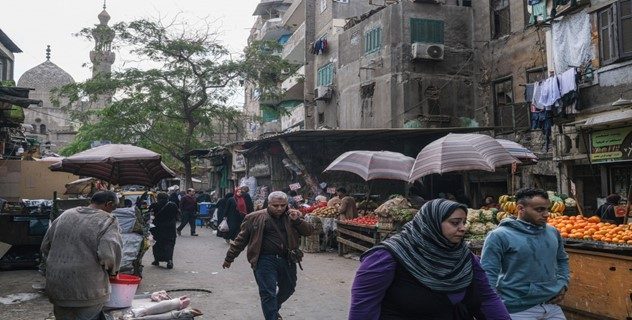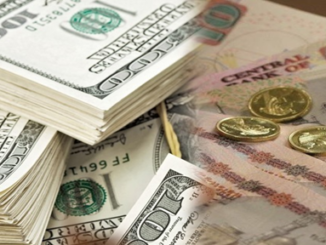
According to Bloomberg, the Egyptian ‘pound devaluation bets ease as Citigroup Inc. sees no short-term move’.
Traders are pushing back expectations for a devaluation in the Egyptian pound, with Citigroup Inc. predicting that the central bank will likely hold off on such a move at least through the end of next month, reported Bloomberg.
Another steep drop in the pound before the end of Egypt’s fiscal year ending June 30 could derail the government’s target of a 6.5% budget deficit and for stabilization of the nation’s debt relative to its gross domestic product, said Citigroup’s Luis Costa.
The Central Bank of Egypt will also probably wait for “bumper tourism” revenues of about $14 billion to filter through the economy before deciding on the need for another pound recalibration, he said.
“The CBE will likely not engineer another aggressive pound devaluation over the next month or so,” Costa, Citigroup’s London-based head of CEEMEA strategy, wrote in a note on Wednesday.
Citigroup’s strategy is to sell the dollar against the Egyptian currency in the one-month non-deliverable forwards market, “on the back of the view of no EGP depreciation before the end of this fiscal year,” Costa said.
While derivatives used to hedge risks or for speculation have been signaling the approach of Egypt’s fourth devaluation since March 2022, traders have trimmed those bets in the past two weeks.
In the non-deliverable forwards market, the pound’s one-month contract traded around 32.9 on Thursday, after recovering from an all-time closing low of 35.3 on April 25.
In comparison, the pound’s 12-month contract was at 43.3 per dollar, signaling expectations of a steep devaluation eventually. The Egyptian currency was trading at 30.9 on Thursday after losing almost half of its value in the past year.
A senior International Monetary Fund official said this month that the government is “serious” about applying a flexible foreign-exchange rate — a key condition of a $3 billion loan agreement with the Washington-based lender.
The pound’s stability since March — even as its value declines on the local black market — has some investors questioning Egypt’s commitment to a flexible currency regime.
Gulf countries are waiting for more certainty on the currency before making good on promises to provide billions of dollars in investment. Officials have said they expect to bring in at least $2 billion from the sale of some state assets by the end of June.
Subsidized food allocations cut
To battle the economic crisis the country is suffering, the Egyptian authorities have reduced the amount millions of people claim under the country’s subsidized food program, with the aim of revamping the costly welfare system, according to Bloomberg.
Egypt is reportedly reducing the amount millions of people can claim under a subsidized food program, part of an effort to revamp a costly welfare system amid the country’s biggest economic crisis in years.
Under new rules issued by the Supply Ministry late Tuesday, ration-card holders — which make up about 60% of the 104 million population — will see their monthly allocation of subsidized sugar halved to one kilogram per person, or four kilograms for a maximum of four people on the same card.
The amount of subsidized cooking oil remains at one 800ml bottle, though the price for that and sugar will go up by 20%.
The changes reflect the challenges facing Egyptian officials as the North African nation grapples with its worst foreign-currency shortage in decades and is under pressure from potential donors, including regional allies, to enact painful reforms.
Those include the sale of state assets and the potential devaluation of the currency for a fourth time in just over a year.
The previous three currency devaluations helped Egypt secure a $3 billion International Monetary Fund package, though that hasn’t eased investor concerns.
Fitch Ratings earlier this month cut Egypt deeper into junk status, while S&P Global Ratings reduced the outlook to negative. Moody’s Investors Service on Tuesday put the country’s ratings on review for a downgrade.
Annual inflation, while slowing in April, remains above 30% and food prices are up over 56%.
In an effort to offset the pain for Egyptians and avoid social unrest, the new budget for fiscal year 2023-24 starting July 1 will see the government raising funding for social programs by almost 48% compared with the current year.
Finding money to raise spending isn’t easy. Officials are still waiting for billions of dollars pledged by Gulf Arab states that have yet to materialize, stated Bloomberg.



